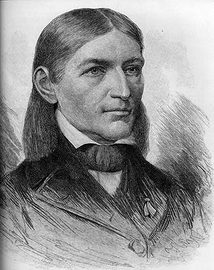An article by Dr Stella Louis and Dr Sacha Powell.
For children, play is never trivial; it is deeply serious. Play is the most important resource that children have to help them grow, learn and connect with people, the world around them and their imagination.

Childhood is a time for, well, childhood! It’s not a preparation for school or adulthood. Children need to go at their own pace, with time to explore, manipulate, discover, practise newly acquired skills and repeat what they are doing. This helps their growth and learning, especially if adults look for what a child can do – instead of what they can’t do – and celebrate how children do things as well as what they achieve. This is the core of Froebel theory and practice.
For children, play is never trivial; it is deeply serious. Play is the most important resource that children have to help them grow, learn and connect with people, the world around them and their imagination. For example, the young child pretends to look after a ‘stick doll’, carrying it as if it were a baby.
Froebel described play as “the highest expression of human development in childhood, for it alone is the free expression of what is in the child’s soul”. Children often express their thoughts, ideas and feelings through lots of symbols, which can be words, tunes, body language, use of space or things they create with different materials or their imagination. These symbols help them to grow in understanding and to feel in control of their feelings. They also help other people to connect to what the child is trying to convey about what they think or feel, and to show their knowledge and understanding of the world and their place in it.
Froebel in practice
Froebel found that children need real-life, hands-on experiences so that they can use these to learn. For example: Aged 3, John found a snail near a drain in his garden and spent a long time letting it crawl over his hands, watching it very intently. He called it ‘Freddie’ and wondered aloud where its mummy and daddy were, making plans to go and look for them. He spent time wondering where to put Freddie – on a rock, under a log or in his mud kitchen.
John’s play absorbs and reflects his first-hand experiences and imagination. For Froebel, children don’t just learn about nature, they learn through engagement with nature. Here, John shows a great deal of care for the snail as he brings his own experience of being cared for in a loving family to his play. He is learning loads of science -thinking about places that a snail might live, the feel of a snail on his hands, watching its eyes on stalks, being engrossed in the life of another creature and asking questions. There is maths, internal mapping of the garden, use of positional language (on top/ over/under) and he is matching this up in some way to the way the snail moved over his hands, (things belonging like mummies and daddies).
While watching what a child is doing, adults can marvel in what they see and think about how to encourage and extend learning by building on what the child can do and their particular interests. Watching isn’t a passive activity; it is time when the mind is whirring with realisations and ideas! It’s a time to really notice the little things.
March 2020
Interested in learning more about Froebelian practice?
Take a look at the Froebel Trust Short Courses - led by Dr Stella Louis.
Find out moreAbout the authors
Dr Sacha Powell is Chief Executive Officer of the Froebel Trust. Sacha is an Honorary Professor of Early Childhood Education at the Education University of Hong Kong and was Director of the Research Centre for Children, Families and Communities at Canterbury Christ Church University from 2013-2018. In recent years she has co-authored or co-edited many books and articles including the Routledge International Handbook of Theories and Philosophies of Early Childhood Education (2017), An Introduction to Early Childhood Studies for Sage (2017), and the Routledge International Handbook of Froebel and Early Childhood Practice (2018).
Dr Stella Louis is a freelance early years consultant, trainer and author working with individual nursery settings, parents, nursery schools, local authorities, government departments and charities. She provides training and consultancy and is particularly interested in observation and its part in developing learning, especially through children’s schemas. Stella leads the team of Froebel Travelling Tutors - promoting, developing and delivering the Froebel Trust Short Courses across the UK. She has worked both in the United Kingdom and internationally, in South Africa, where she worked with teachers to develop a Froebelian approach to teaching and learning.
About this article
This article also appeared on Community Playthings.





